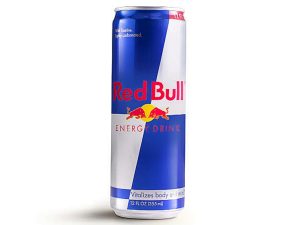Advantages and Disadvantages Of Alcohol: For more than the 10,000 years human beings have been consuming alcohol, there has been constant struggle to know the advantages and disadvantages of these fermented beverages. This contention still lingers till today as we strive to know the health benefits and consequences of what we consume.
An alcohol is a flammable volatile liquid which is being produced by the process of fermentation of fruits and sugars, or other source of sugar which could act as a drug. Alcohol consumption plays a lot of role in the society in many cultures. Alcohol being what it is, most countries have set out laws which regulate the consumption, production, and sale of alcohol in the country. Such regulations differs from one country to the other, it may include the labeling of the alcoholic percentage or the use of a warning label. However, some countries did ban the consumption of alcohol generally, regardless; the intake of alcohol is legal in most part of the world.
Recommended: Differences between acid and base explained
Advantages of Drinking Alcohol
The understanding of the benefits and risk of the intake of alcohol seems a bit confusing because evidence of moderate alcohol consumption is unknown in the average adult.
1. Reduced risk of cardiovascular disease: A study at Harvard University discovered that moderate consumption of alcohol increases levels of high-density lipoprotein, HDL, or ‘good cholesterol and higher HDL levels are associated with greater protection against heart disease.

Moderate consumption of alcohol has also been associated with beneficial changes ranging from insulin sensitivity to improvement in factors which influence the process of blood clothing.
2. Increased life span: Occasional drinking could add a few years to one’s life. A study at the Catholic University of Campobasso showed that taking less than four or two drinks in a day could reduce the risk of death by 18 percent in both men and women.
According to Dr. Giovanni de Gaetano of the University, the little amount, taken preferably during meal appears to be the best way of consuming alcohol.

Also see: Characteristics of Scientific Knowledge
3. Improved libido: Contrary to the old believe, the newer research has proved that moderate drinking may actually protect one against an erectile dysfunction in the same way the intake of Red wine may benefit the heart.
In the 2009 study which was published in the ‘Journal of Sexual Medicine’, it was found by researchers that the chances of erectile dysfunction were by 25 to 30 percent amongst alcohol drinkers.
4. Helps with the prevention of common cold: The Department of Psychology at the Mellon University discovered that while the chances of common cold was improved by smoking, the intake of moderate alcohol reduced the chances of getting common cold and lead to the decrease of common cold among nonsmokers.
In 2002 according to the New York Times, Spanish researchers discovered that taking eight to fourteen glasses of wine per week especially Red Wine, contributed to the reduction of 60 percent of the risk of developing common cold.
Also see: Best African Countries to do Business
5. Reduce the risk of Gallstones: According to the researchers at the University of East Anglia, the intake of two unites of alcohol per day could reduce the risk of Gallstone by one third percentage. The researchers on this project stressed the fact that the basis of their findings is based on the moderate intake of alcohol and not its excessive intake also that excessive intake could cause health problems to the individual.
Recommended: Universities that accept JUPEB in Nigeria
6. It Leads To Better Health In One’s Heart: Some alcohols (such as red wine) are protects the body more than others. For instance, red wine. This wine has a high concentration of polyphenols that are called “resveratrol“. It is reported by the Mayo Clinic that these polyphenols in red wines help to prevent coronary heart disease.

Generally, wines contain antioxidants and flavonoids which are beneficial for the blood vessels and heart (for instance, people with diabetes). These contents in alcohol can produce a lot of free radicals as a result of poor sugar metabolism. Again, these health-supporting contents (in wines) have shown to be beneficial only when you drink less wines. For instance, in 2017, a study in The Lancet Public Health found that moderate drinking does not worsen blood pressure, but heavy drinking does.
So, if you drink more alcohol, it may not be beneficial to you. For those who drink more than two drinks in a day, reducing alcohol can improve blood pressure. Again, high cholesterol is a major risk factor for stroke and heart disease (especially non-high-density lipoproteins or LDL cholesterol). It can affect cardiovascular health and build up the inner part of your arteries.
However, high-density lipoproteins also known as the “good” cholesterol helps your body get rid of LDL. Again, in 2017, review in the American Journal of Clinical Nutrition found that moderate drinking decreases the levels of HDL cholesterol, but it depends on the type of beverage.
7. It Leads To Lower Risk Of Diabetes:In 2016, it was reviewed by the American Journal of Public Health that moderate drinking might help to lower your risk (if you have diabetes).

The research shows that people who drink one or two alcohols in a day have 40 percent lower risk of developing this disease compared to people who do not drink alcohol at all. Also, drinking 15 grams of alcohol in a day potentially improves the sensitivity of insulin, and this can help to prevent diabetes.
Also, in 2017, a study in Scientific Reports similarly found that moderate intake of alcohol may have protective effects. That is, it can protect your body systems against diseases. However, both studies showed that higher consumption of alcohol can increase the risk of diabetes.
Recommended: How to Identify a Fake Friend; 10 Signs of a Fake Friendship
Disadvantages (Demerits) of Alcohol
Not every individual who loves alcohol stops at just one, sometimes there is no moderation. Heavy drinking does take its toll on the body as it could cause inflammation of the liver and scarring of the liver, a potentially fatal disease.
Therefore the disadvantages of alcohol are:
1. It increases the risk of breast cancer: There is enough evidence which is convincing that alcohol consumption increases the risk of breast cancer and the higher the consumption, the higher the risk. A constructive study involving men and women within the period of 30 years found that drinking as little as one drink in a day increases the risk of alcohol related cancers like cancer of the oral cavity, female breast, larynx, liver, esophagus in women, both in smokers and non smokers both mostly breast cancer.
In men however, a drink or two per day was not associated with an increased rate of alcohol related cancers (this only occurred in men who did not smoke). In another study, taking 2 – 5 drinks per day increased the chances of breast cancer in women and it was immaterial whether the source of alcohol was wine beer or hard liquor.
Also see: Advantages and Disadvantages of the Internet
2. Alcohol causes weight gain: Alcohol per serving contains at least 100- 150 calories, even the normal amount of 3 drinks a day may add up to 300 calories or more to the body. Mixing drinks will further increase the calories level in the drink.

3. Cardiovascular disease: More than 100 prospective studies have shown that an inverse association between light moderate drinking and the risk of stroke, heart attack sudden cardiac arrest and death from all cardiovascular causes. However, the increased intake of more than four drinks a day would increase the risk of hypertension, stroke, heart attacks, and even death.
The relationship between moderate drinking and lower risk of cardiovascular disease has been observed between men and women. This applies only to people who have no heart disease, and also to those who stand a high risk of having a heart attack, or dying of cardiovascular disease.
The idea that moderate intake of alcohol is a fact which makes sense scientifically. Moderate intake of alcohol raises level of high – density of lipoprotein (HDL) the higher the (HDL), the lower the chances of heart disease.

Recommended: Best science courses to study in the university
4. It damages the skin: Alcohol on its own does a terrible damage to the skin. Dr. Ariel Ostad who is a dermatologist, author and a clinical assistant professor in the Department of Dermatology at the New York University Medical Center said that there are three things which alcohol damage on the skin.
Alcohol is a skin dehydrator and diuretic, which explains the hang over skin dryness and symptoms. The alcohol beats up the liver and disallows it from functioning appropriately and in return, this makes the skin look dull, sallow, and pasty. However this requires an easy fix which is hydration, just drink water to enable it flush out the alcohol in the system and restore adequate circulation in your body.
Recommended: How to Overcome Laziness: 7 Tips to Stop Being Lazy & Unproductive
5. Immune system: The immune system in the body which is designated to fight against diseases should be strong enough to fight against said diseases. When the immune system is not strong to combat the issue before it, the individual would gladly welcome any disease which walks its part. People who consume lots of alcohol have a very weak immune system and also have the tendency of getting sick immediately the disease is introduced into their body.
Pneumonia and tuberculosis are two popular diseases which have engulfed most of the world’s population and alcohol drinkers with weak immune system are most likely to suffer from this diseases as they are some easy catch.
Alcohol do have its pros and cons, however it seems the cons are more deadly and the only way to access the pros is in moderation. Therefore in the consumption and intake of food and drinks, let there always be moderation for a healthy life.

Edeh Samuel Chukwuemeka, ACMC, is a lawyer and a certified mediator/conciliator in Nigeria. He is also a developer with knowledge in various programming languages. Samuel is determined to leverage his skills in technology, SEO, and legal practice to revolutionize the legal profession worldwide by creating web and mobile applications that simplify legal research. Sam is also passionate about educating and providing valuable information to people.